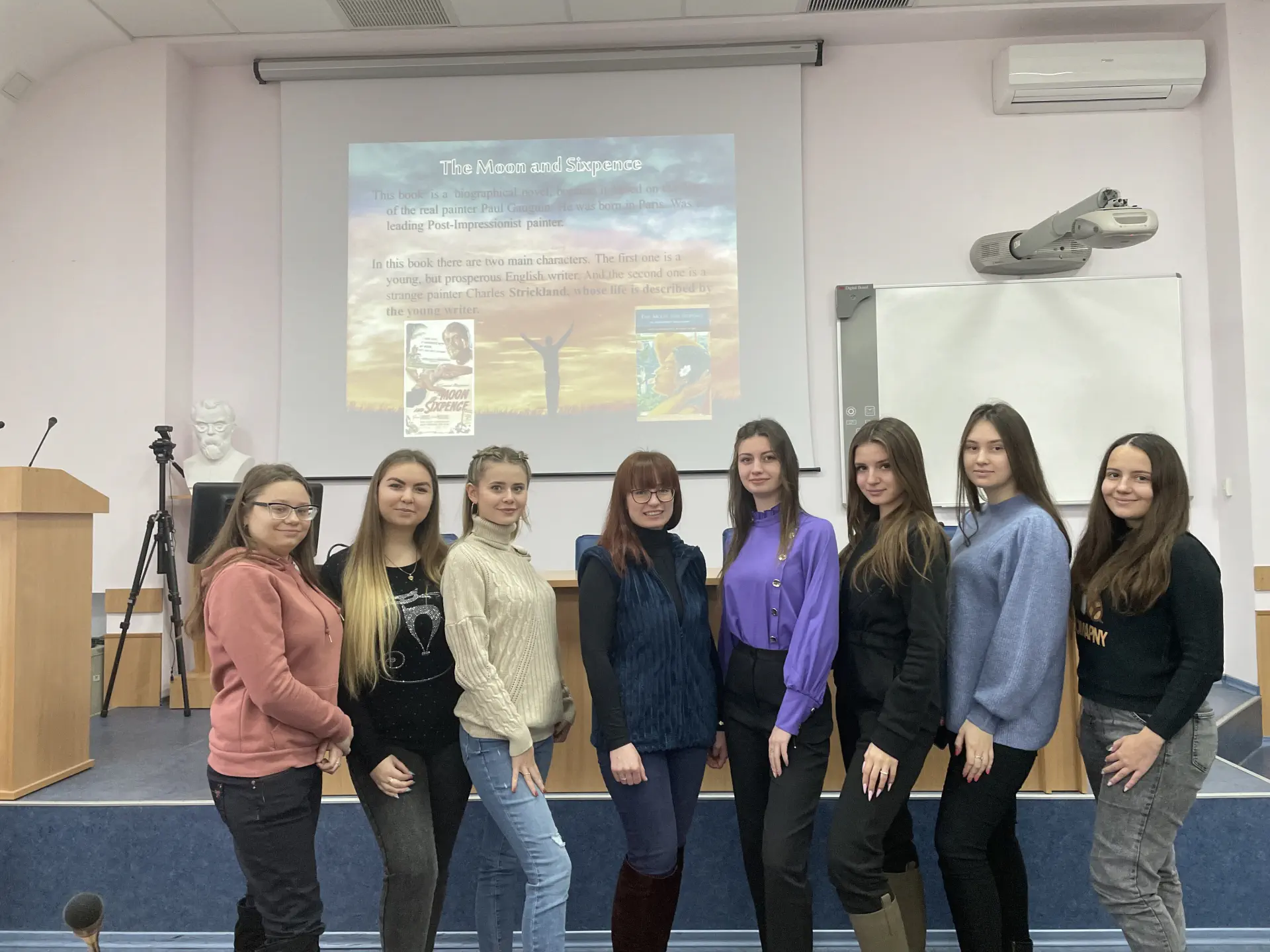At a regular meeting of the students’ scientific club “Philology”, students-philologists explored the life and career of William Somerset Maugham, an English diplomat better known worldwide as a novelist, playwright, and literary critic. Maugham achieved considerable popularity and recognition for his inherent skill of the narrator, truthfulness, refinement of literary form based on the principles of simplicity, intelligibility and melodiousness.
Somerset Maugham has been interested in literature since childhood. From an early age he read a lot and willingly. He wrote his first work, the novel “Liza of Lambeth”, at the age of 23. This book was based on his personal impressions of communication with the poor, which he received during his medical practice at the Medical School of St. Thomas Hospital. This book received rave reviews, but did not become a significant event in the literary environment – the young writer simply went unnoticed. Maugham then wrote several short stories and two novels, one of which, “Mrs. Craddock”, was a success.
Nevertheless, Somerset Maugham tried himself as a playwright, as he believed that the dramatic form was more suitable for his pen. For a long time he tried unsuccessfully to break into the stage with several one-act plays and one multi-act (“A Man of Honour”), but they did not want to get up those plays not because they were unsuccessful, but because entrepreneurs were afraid to take risks with an unknown author. Eventually, his plays began to be staged, and since then they have been a resounding success. With a stable high income and fame, Maugham had nothing to complain about, but was dissatisfied with the director’s arbitrariness: often his plays on stage did not look like they were seen by the playwright. Not being able or willing to impose his opinion on others, Maugham decided that the dramatic format itself imposes certain restrictions on his work.
Breaking with the theater, he went on a journey through the southern seas, during which he wrote several stories, the plot of which was based on his personal impressions of the trip. Simultaneously with the stories, Somerset Maugham began to write large-format works. After “Liza of Lambeth”, he wrote the novel “Of Human Bondage” in 1915, which was largely autobiographical.
In 1928, his new collection, “Ashenden: Or the British Agent”, was published, containing short stories about the secret agent Aschenden, who performs the tasks of British intelligence. The prototype of this character was the writer himself, who also had to perform secret missions in his diplomatic service.
In 1938, the writer, who was already at a respectable age, returned to the autobiographical direction. He presented his life views and memories in the novel “The Summing Up”. During this time he continued to write short stories that were published in various magazines. The last of his great novels was “The Razor’s Edge”. After that, the writer preferred short prose, continuing to write short stories up until 1962.

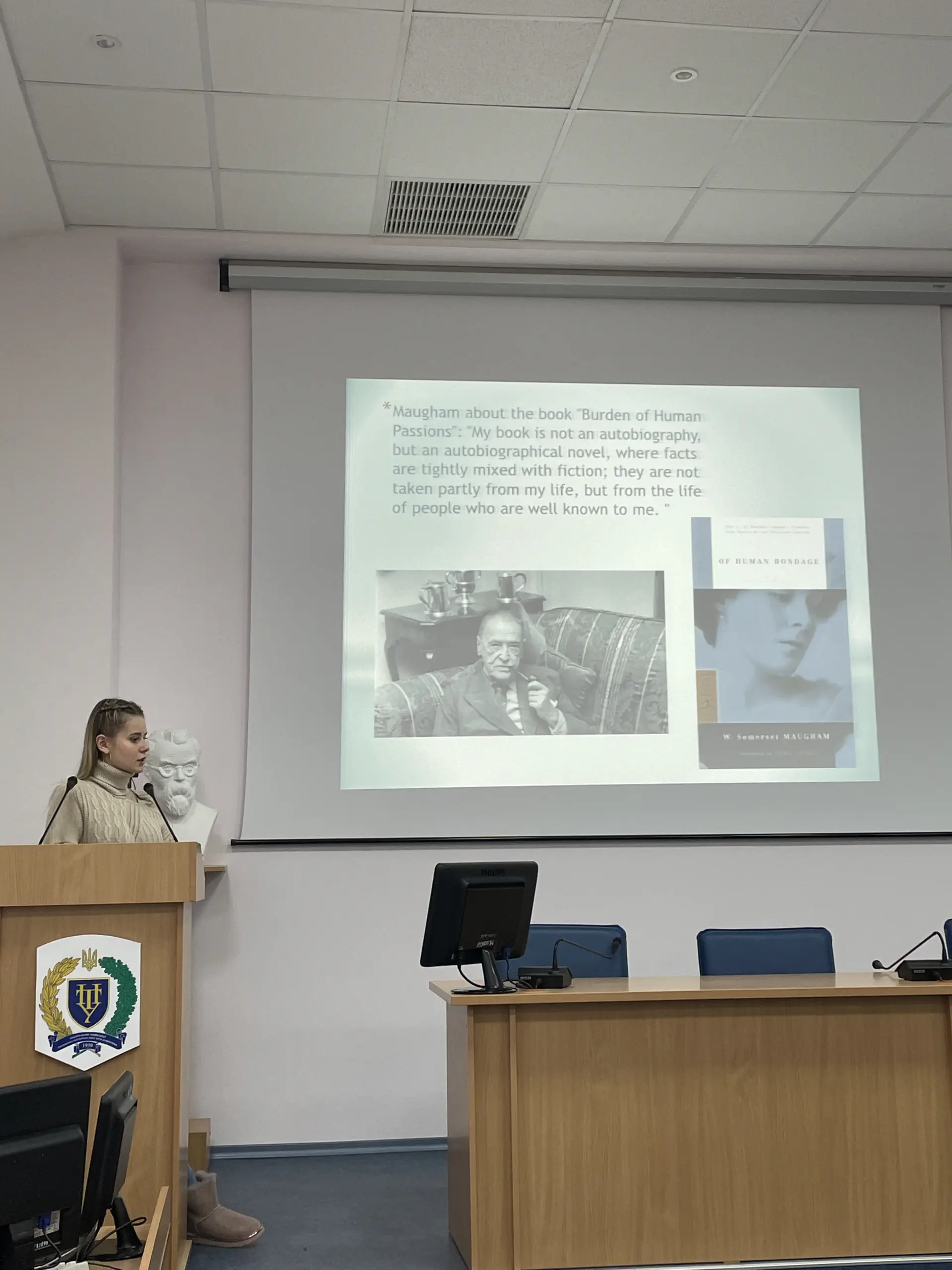

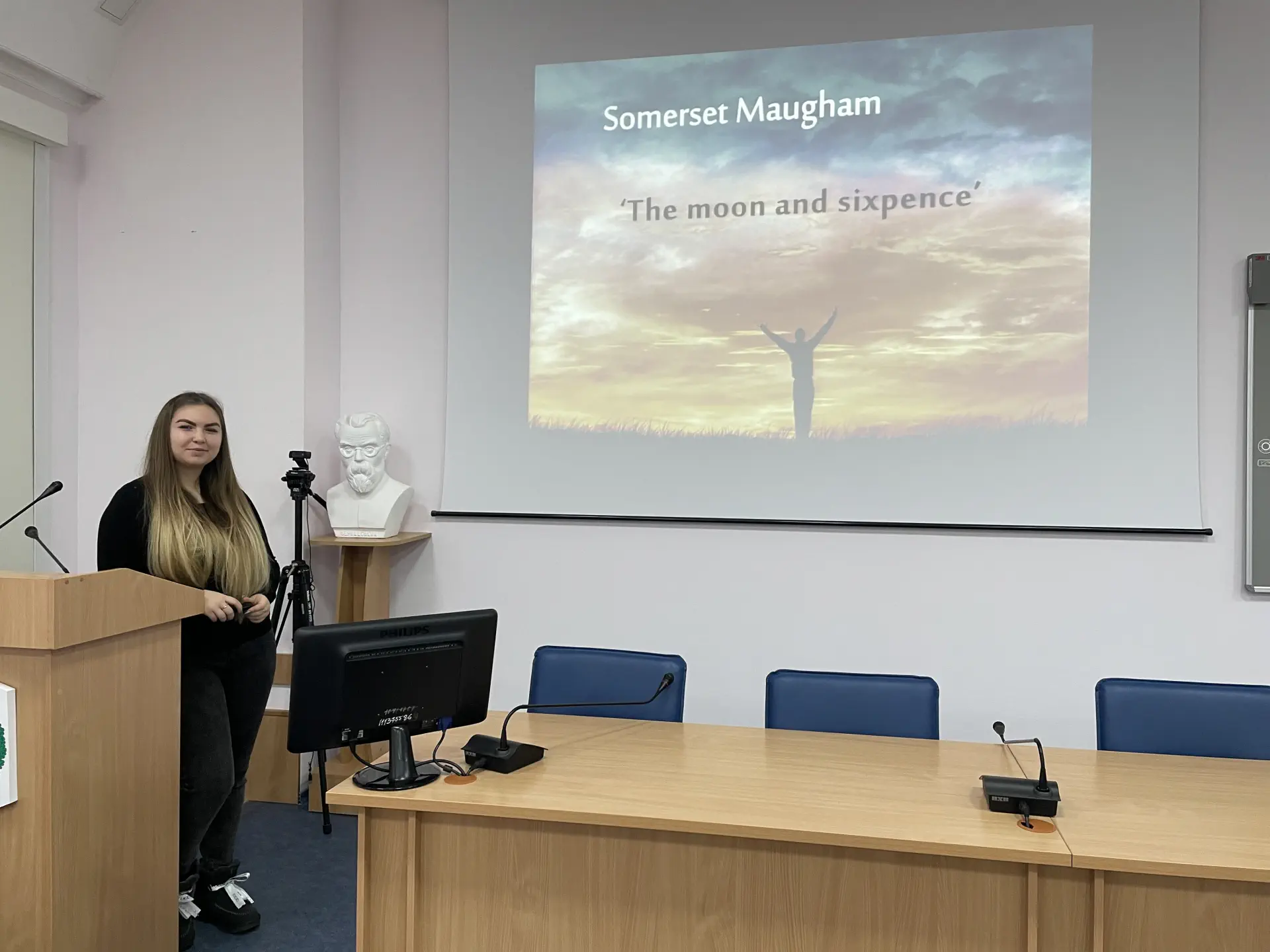
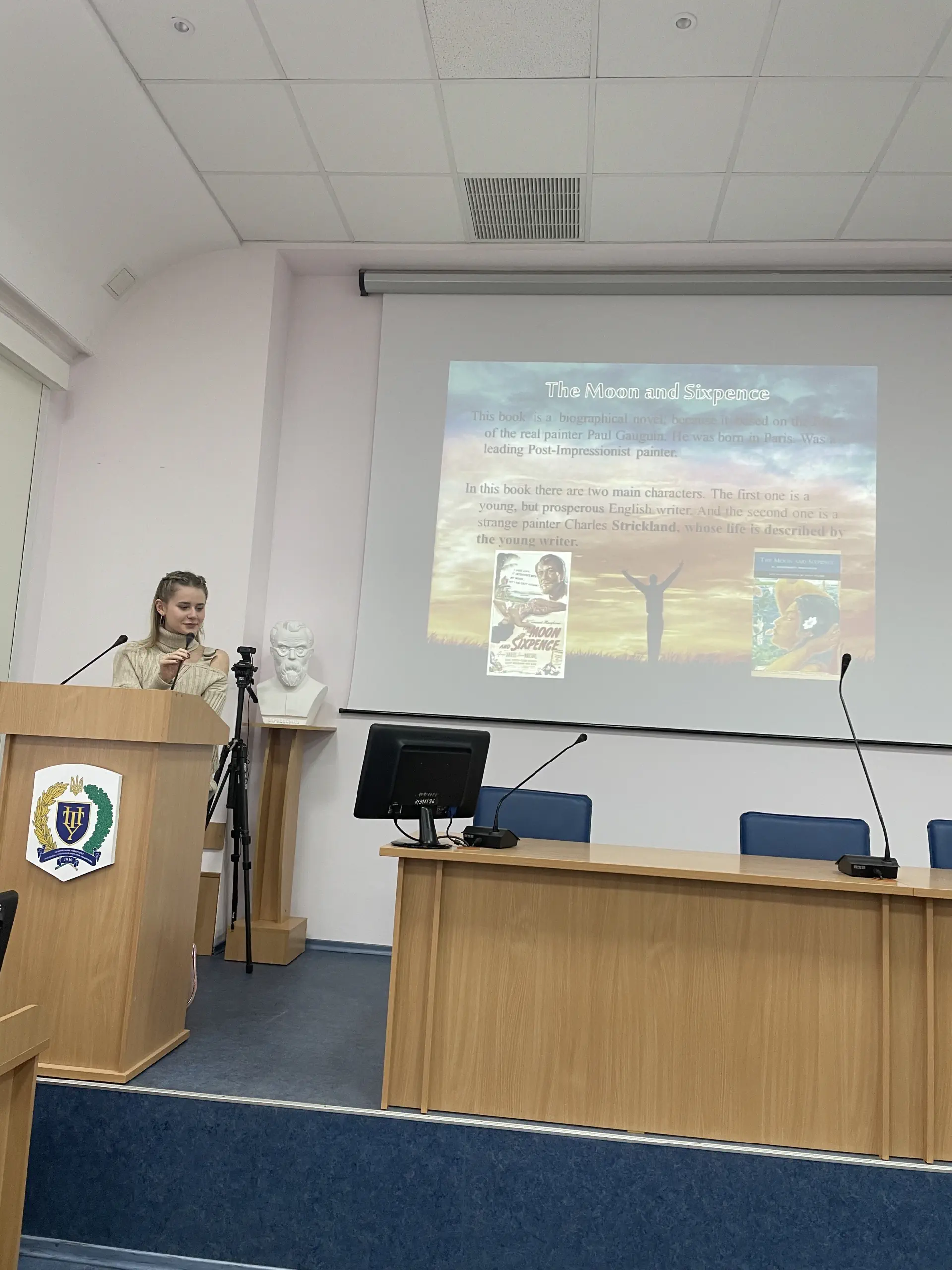
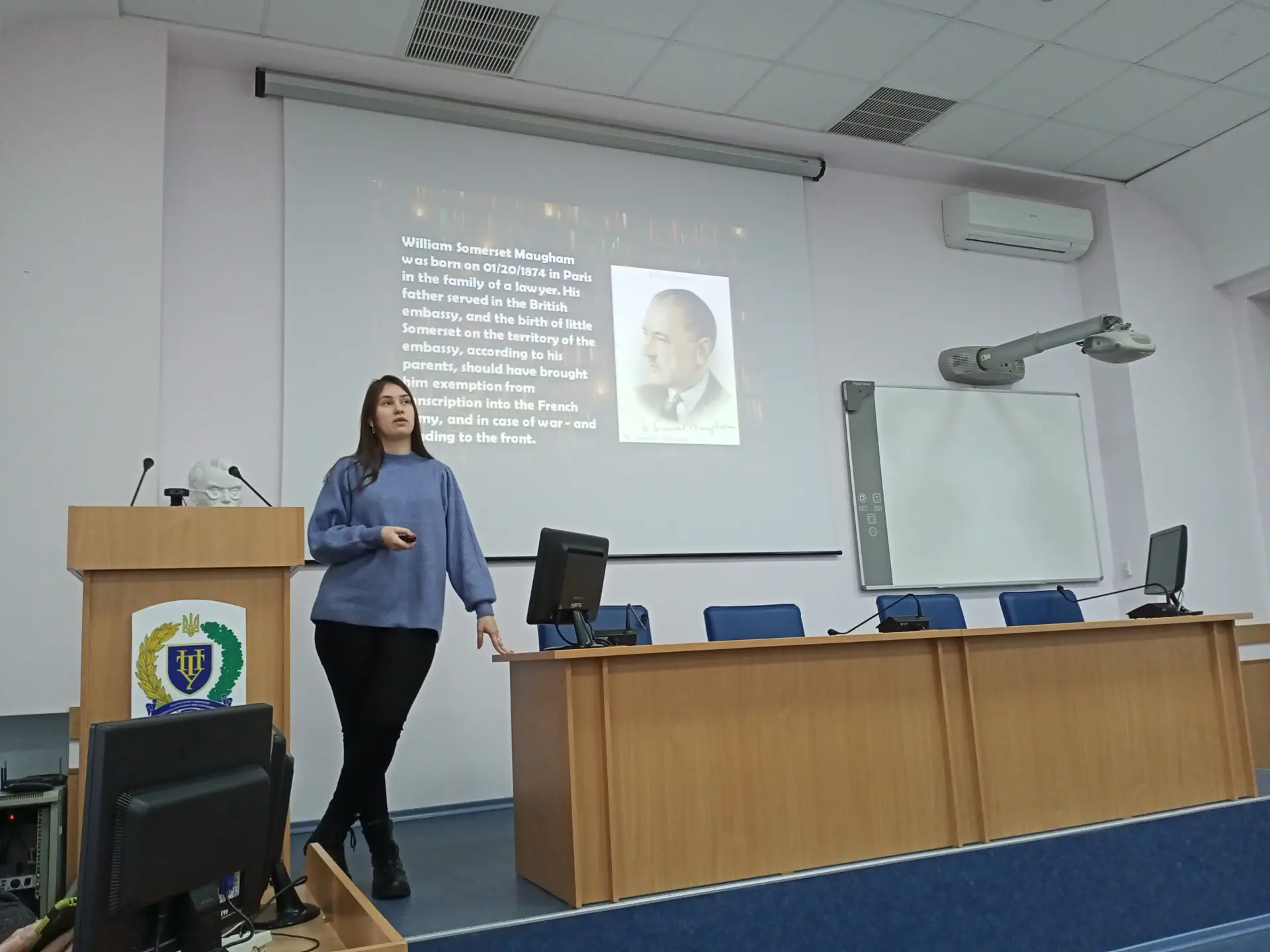
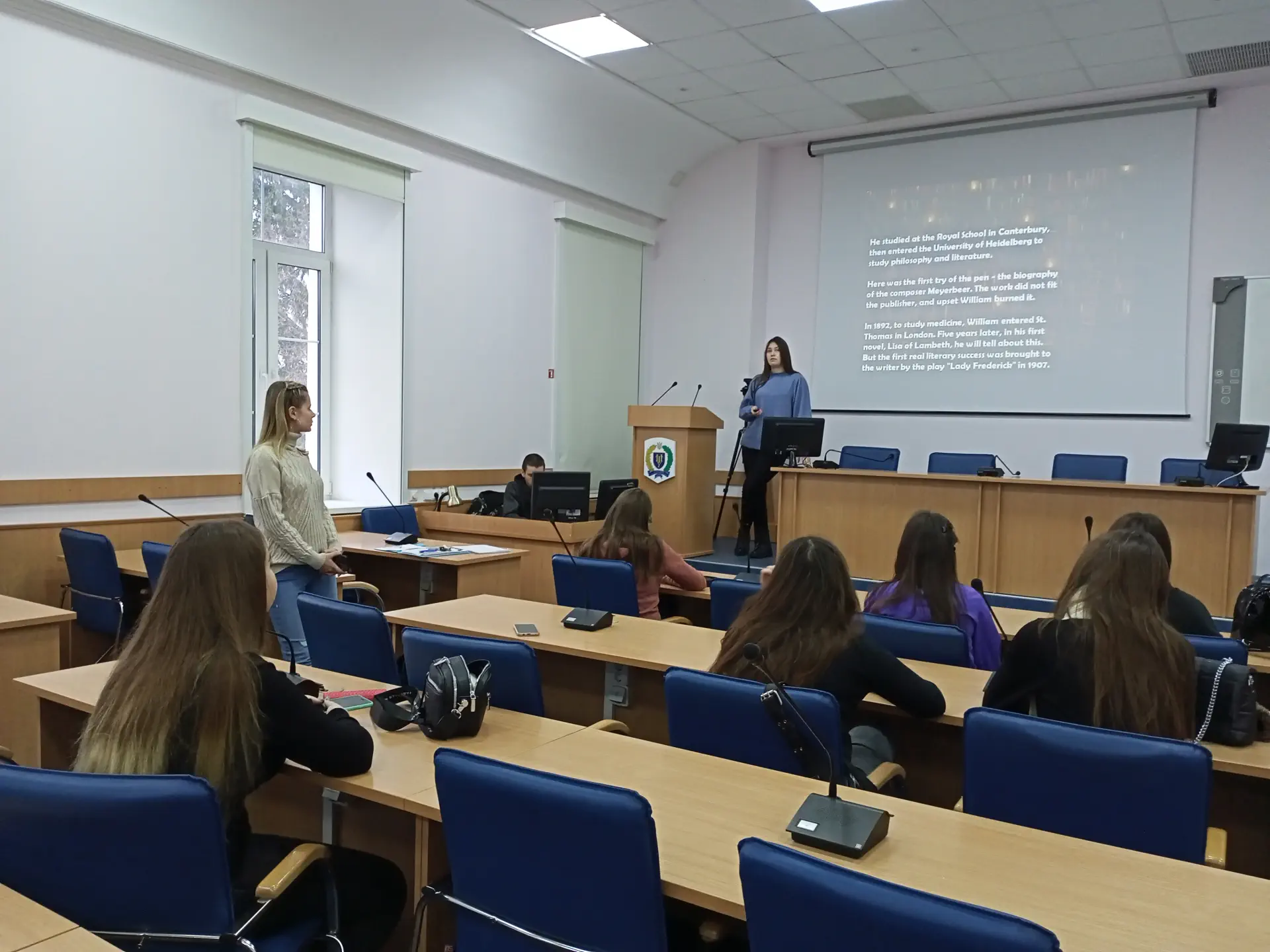


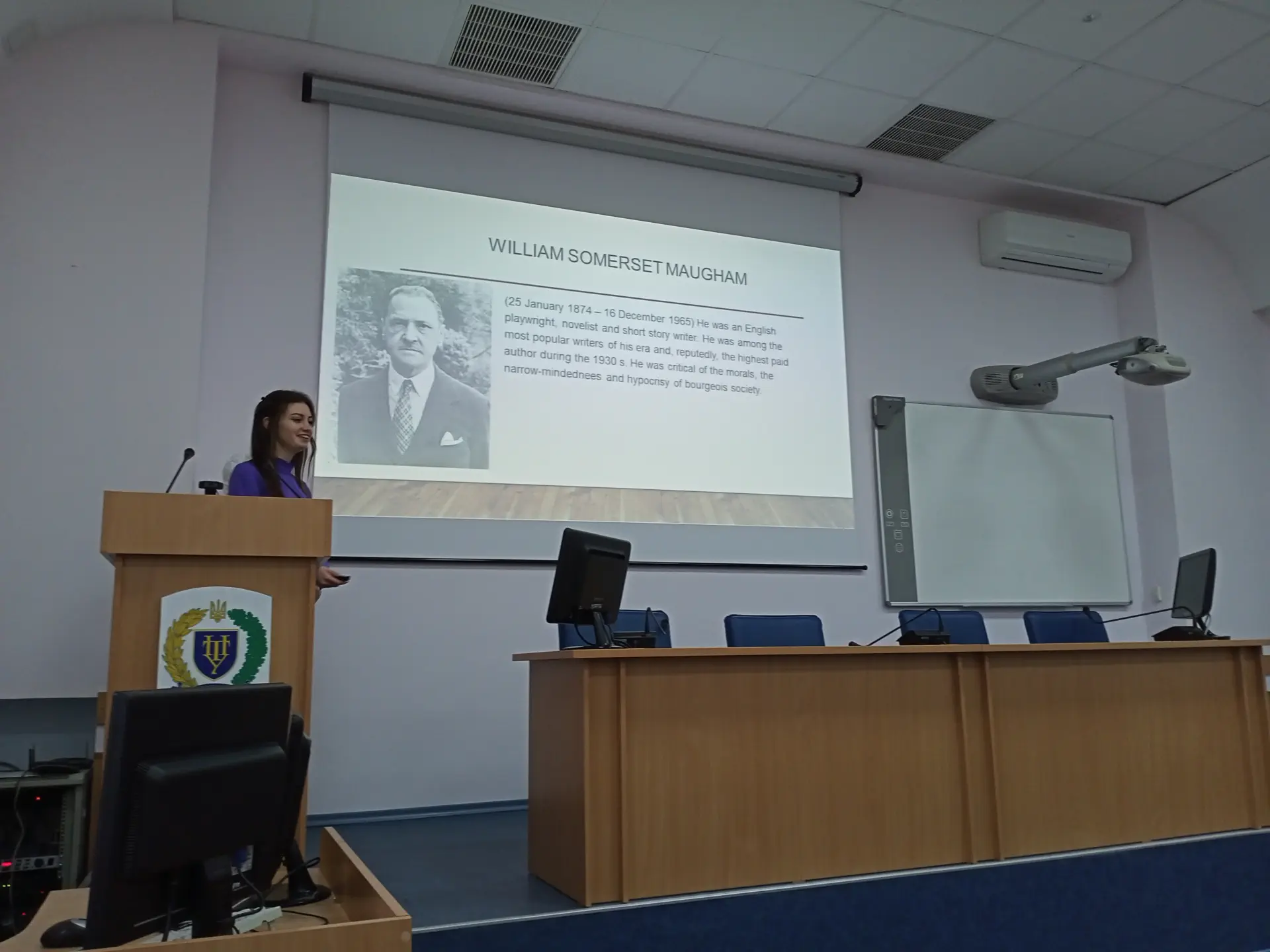

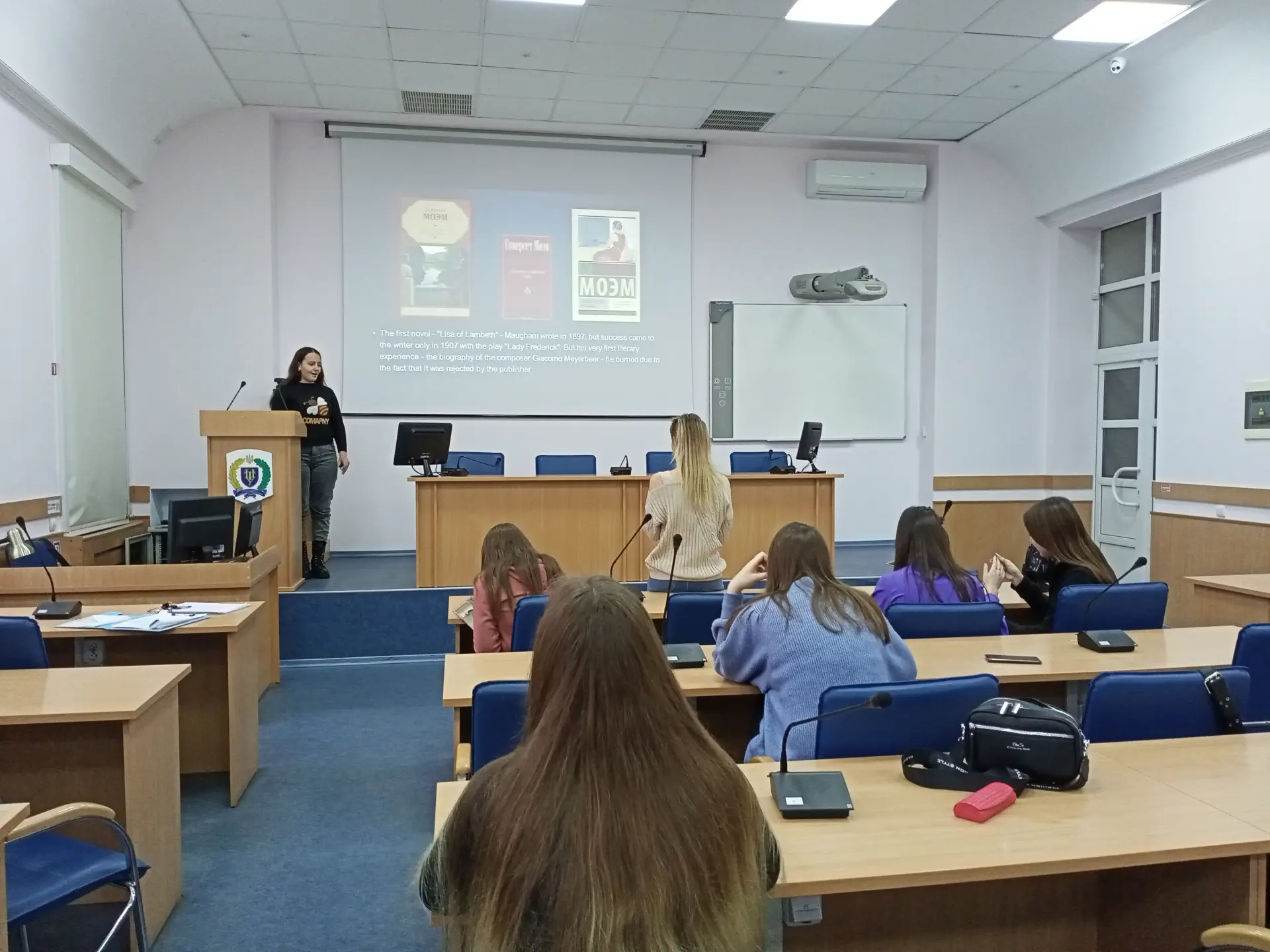



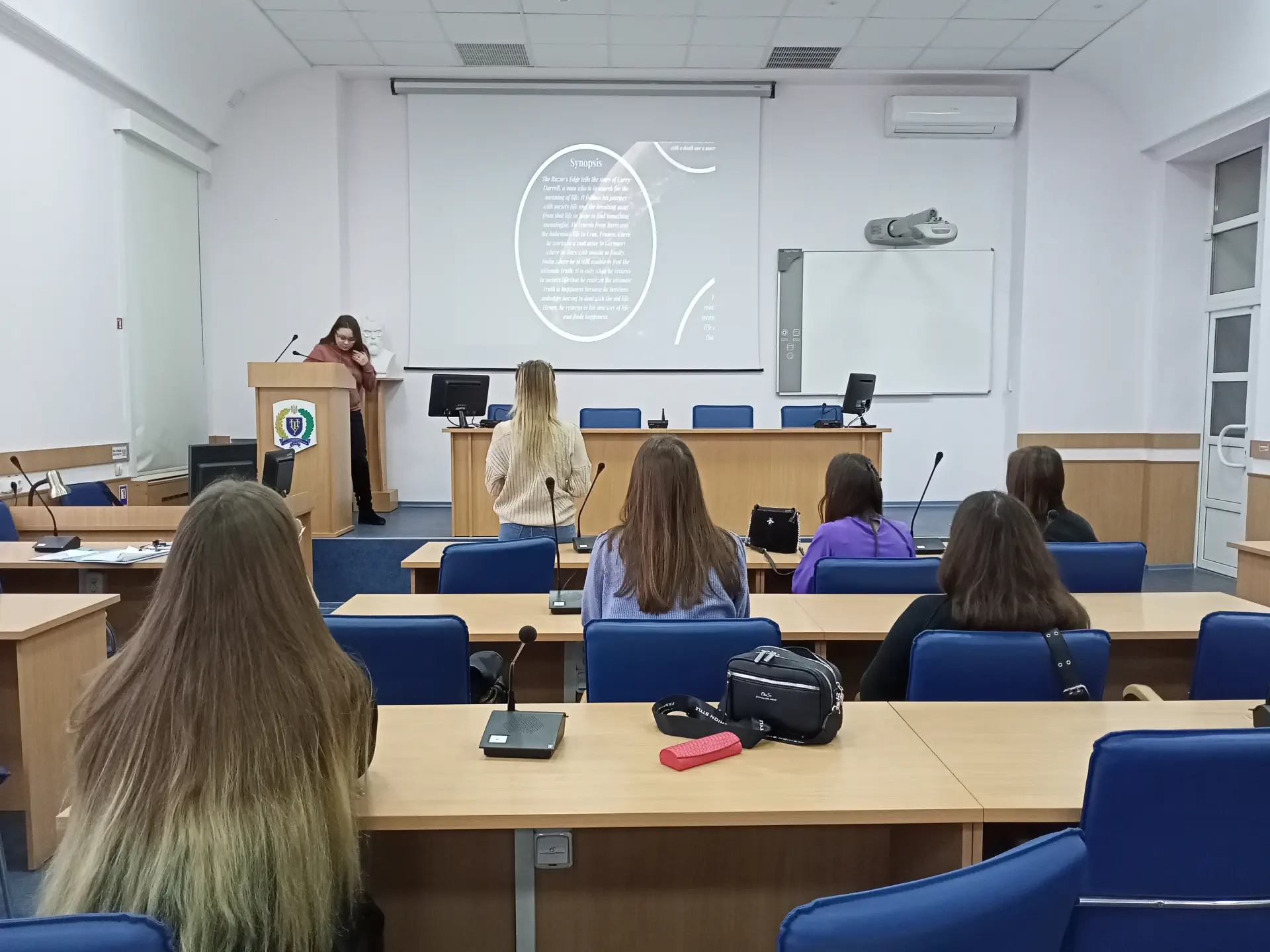
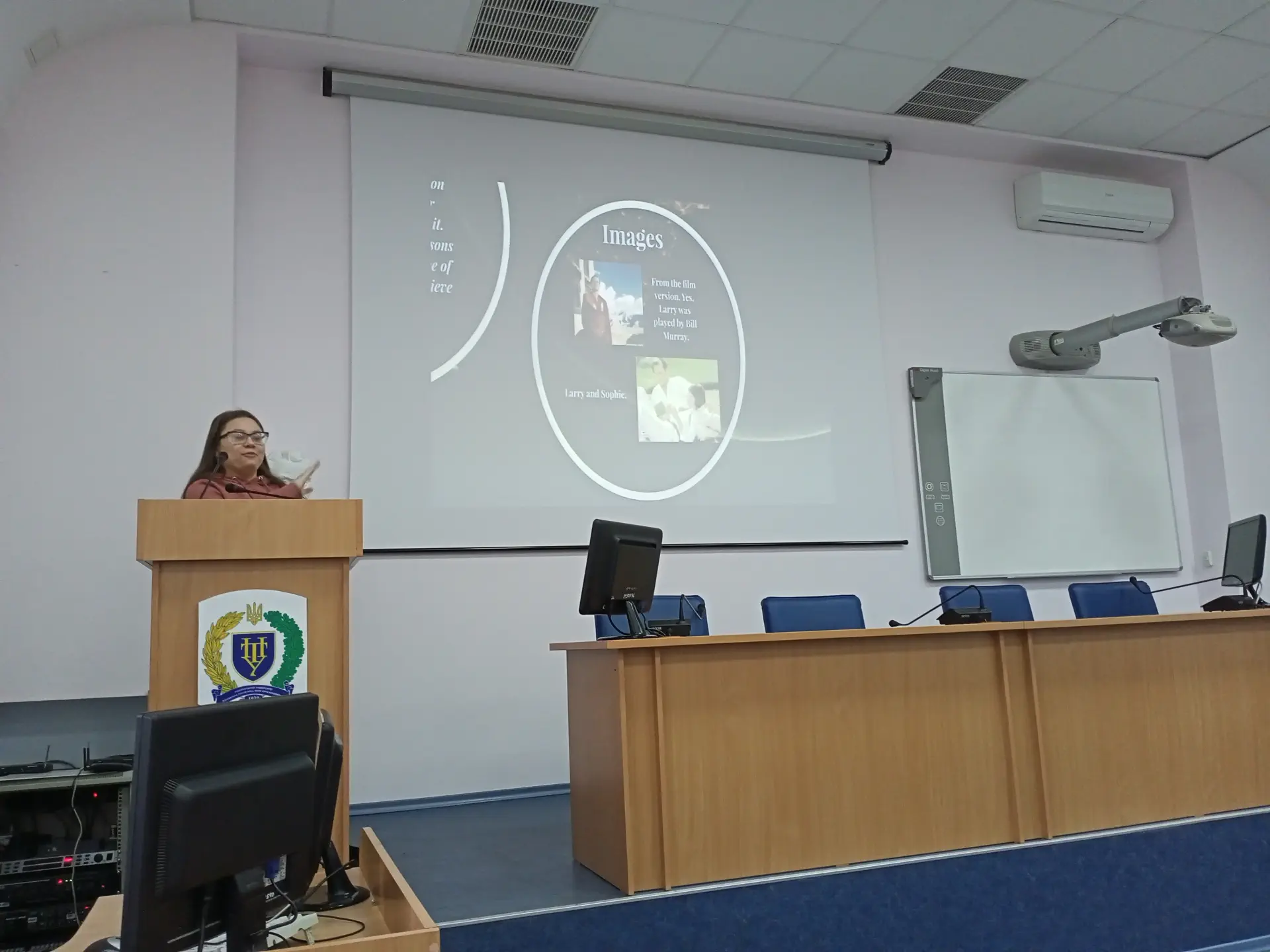
“The genre and stylistic features of Somerset Maugham’s works require great skill from translators, since any translation of a work of art should have the same effect on the translation reader as the original on the foreign language reader. The main function of any literary text is an aesthetic effect on the reader of the original or translation. That is why during the meeting we considered not only the reception of Somerset Maugham’s works in the Ukrainian literary space of XX and XXI centuries, but also translation interpretations of the novels “The Moon and Sixpence”, “Cakes and Ale, or Skeleton in the Cupboard”, “Razor’s Edge”. In particular, we paid special attention to the comparative analysis of the translation into Ukrainian and Russian of non-equivalent vocabulary in the novel “Theater”, edited by the method of Ilia Franko,” – says the head of the club – Candidate of Philological Sciences, Associate Professor of the Department of Germanic Philology and Translation Anna Pavelieva.


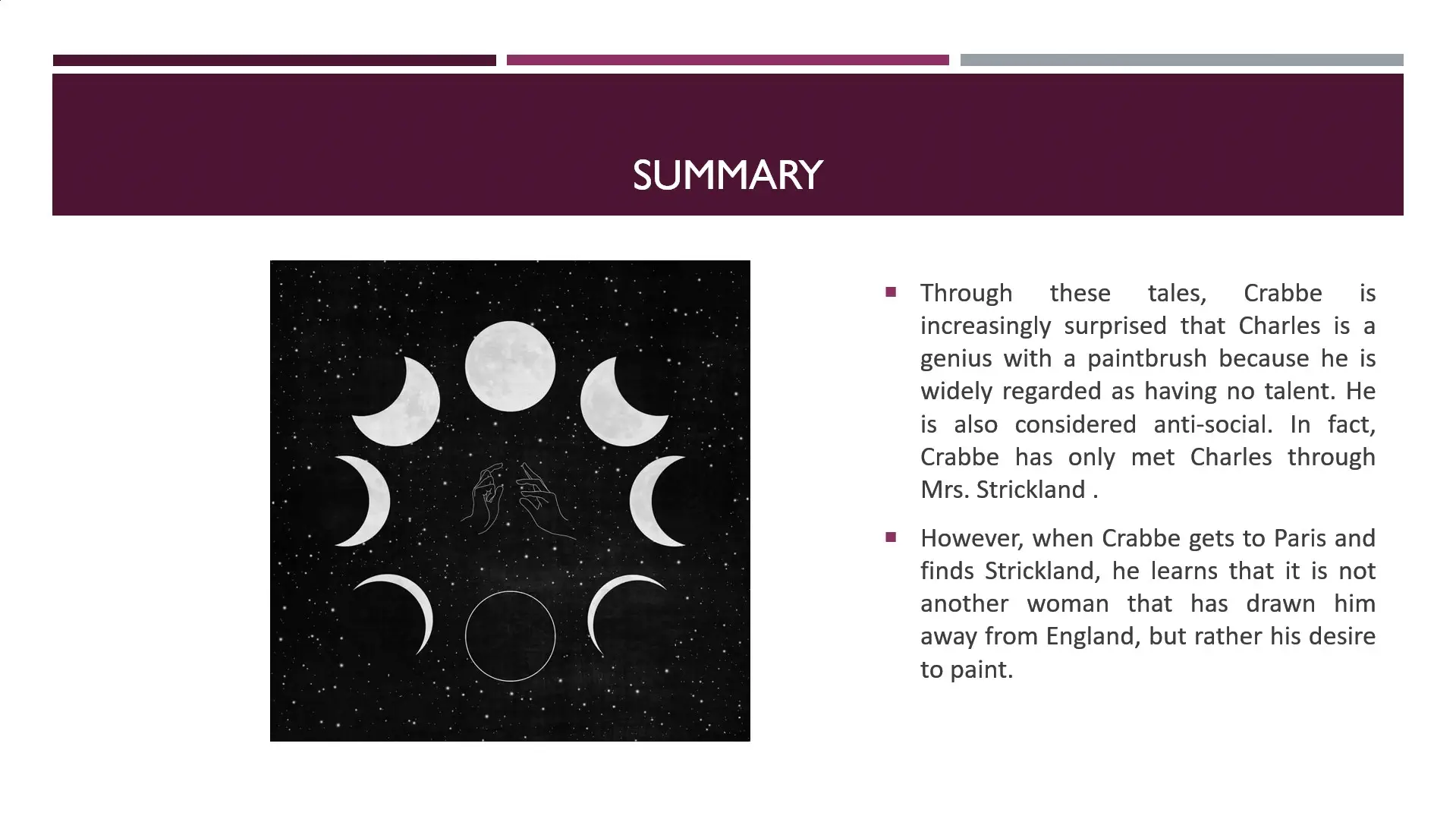





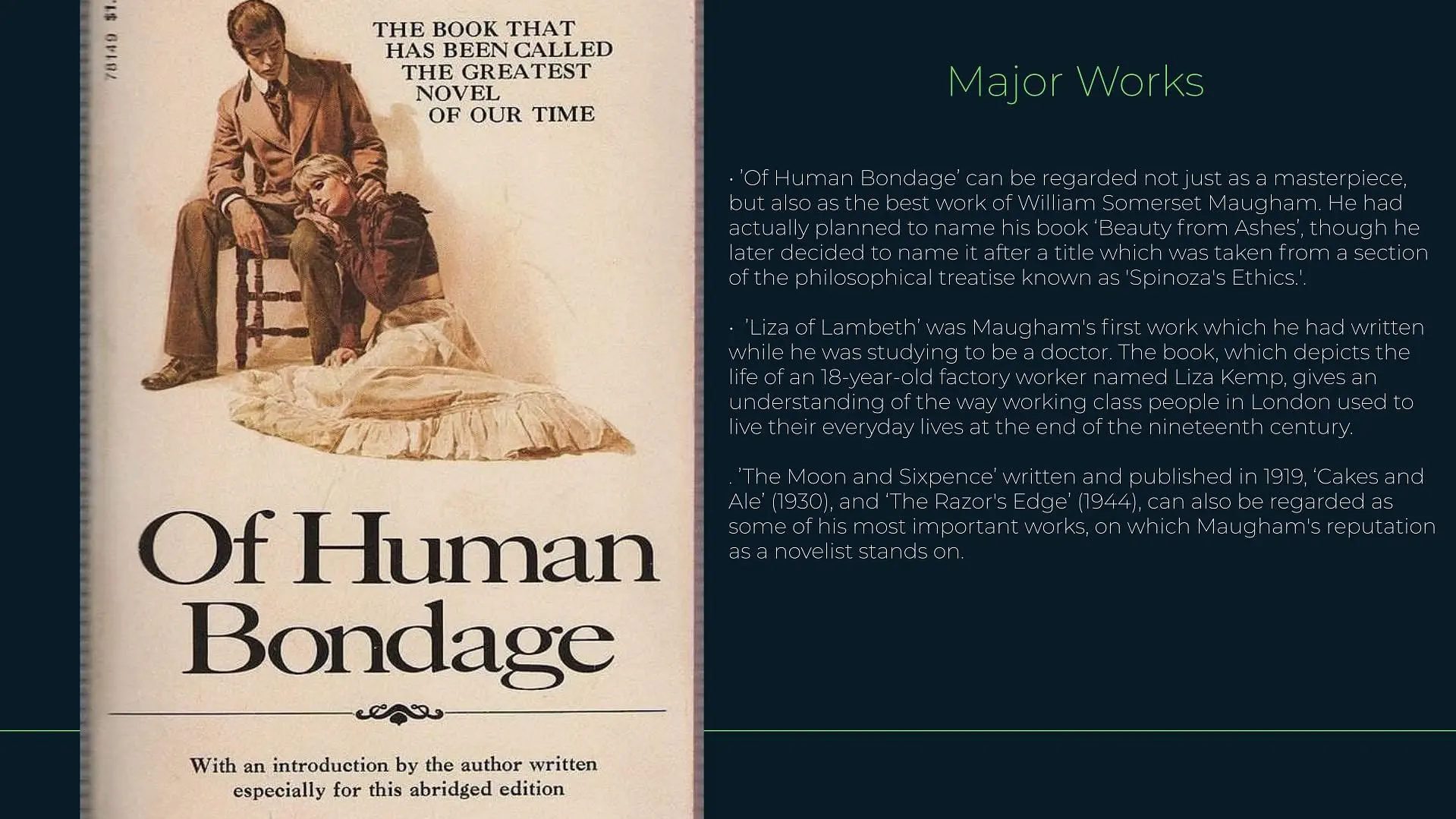
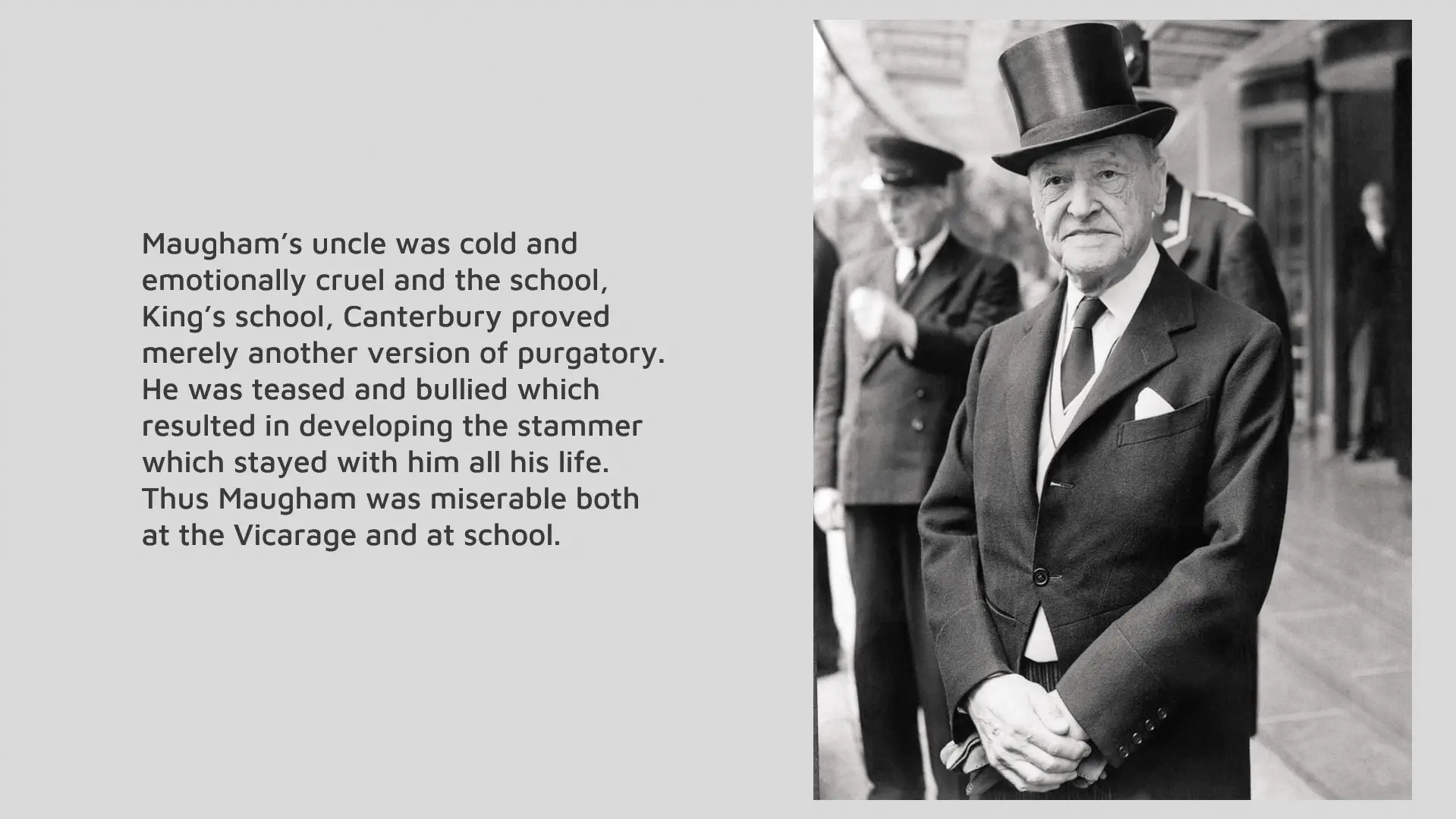

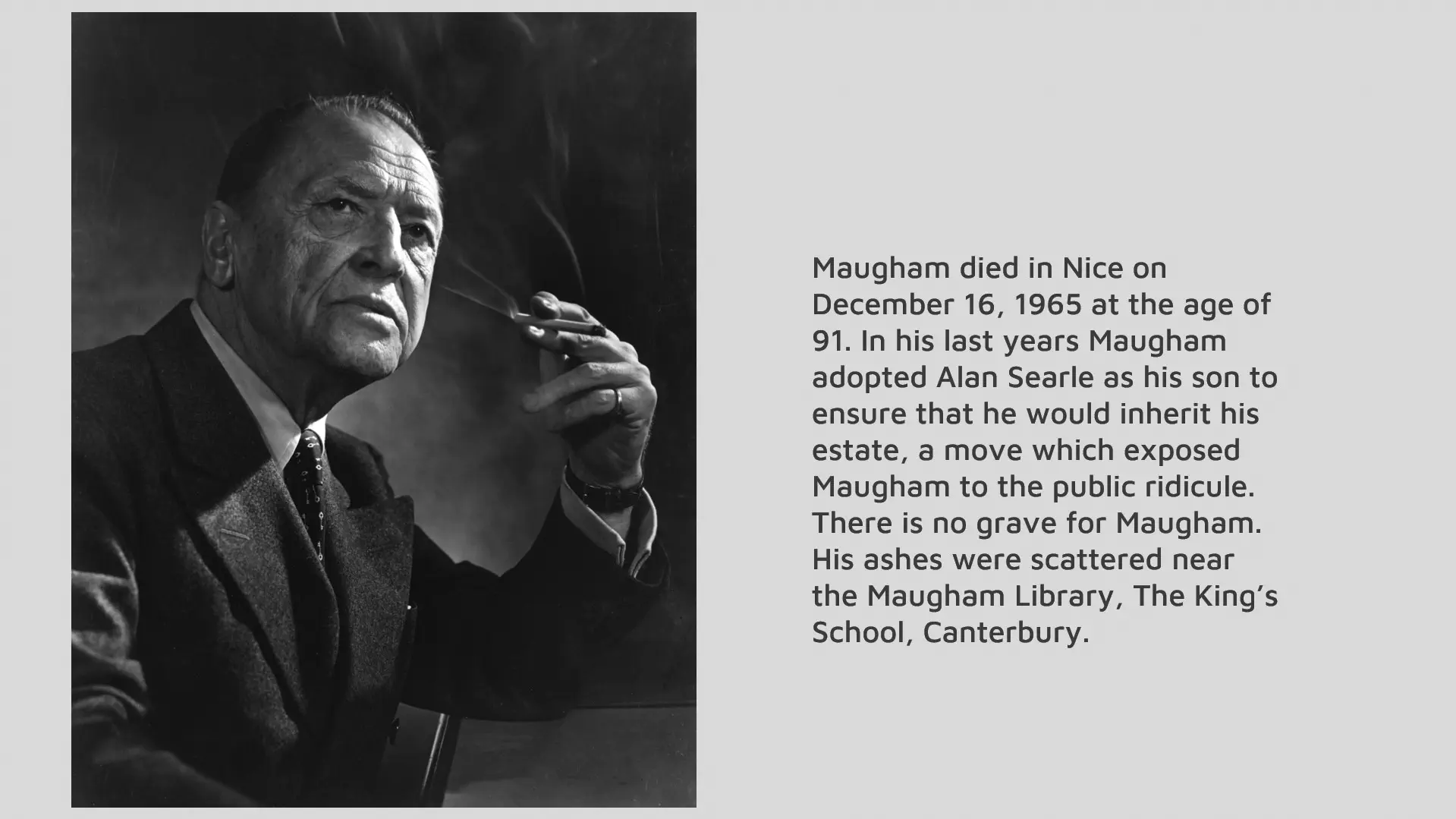
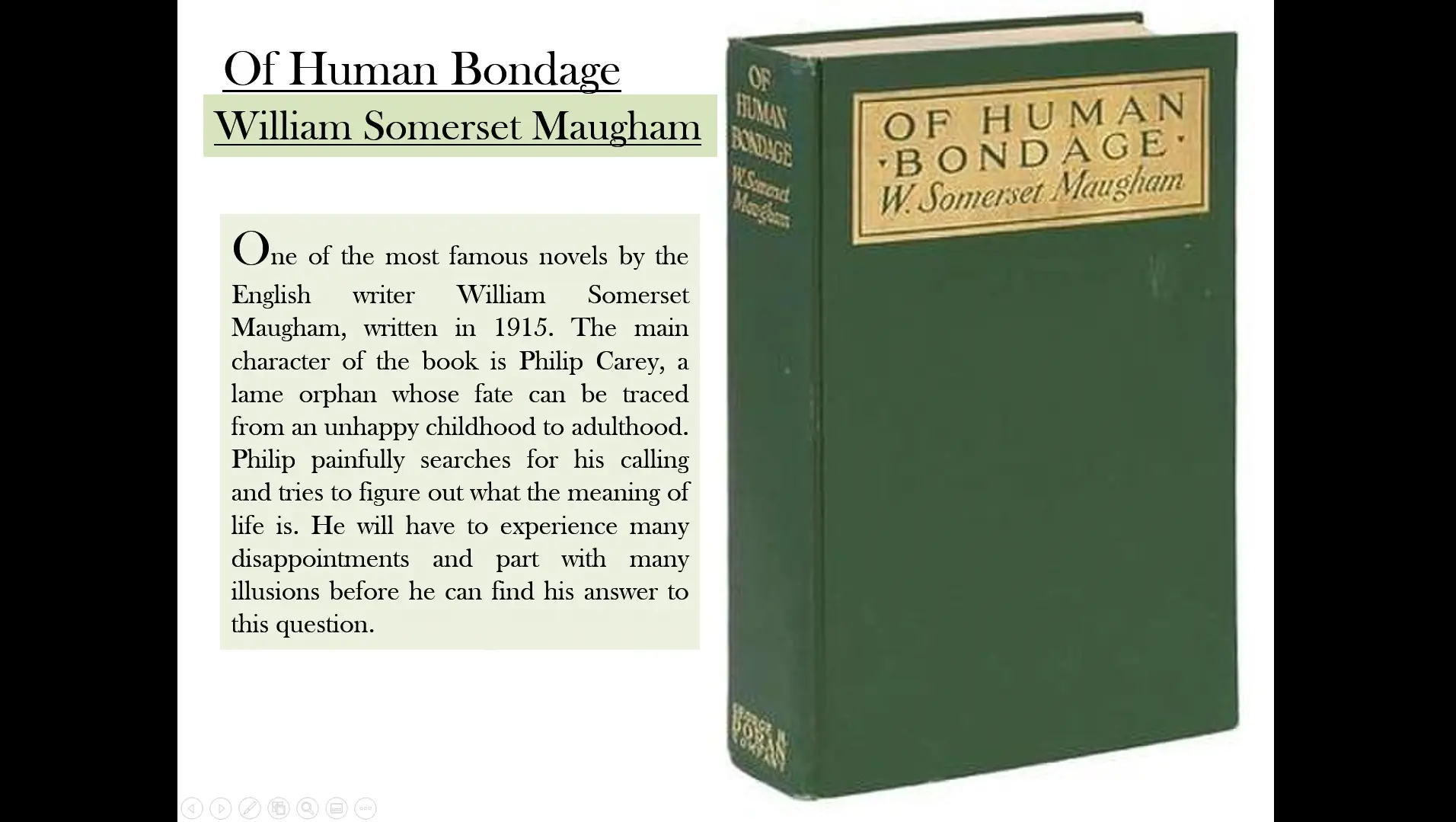
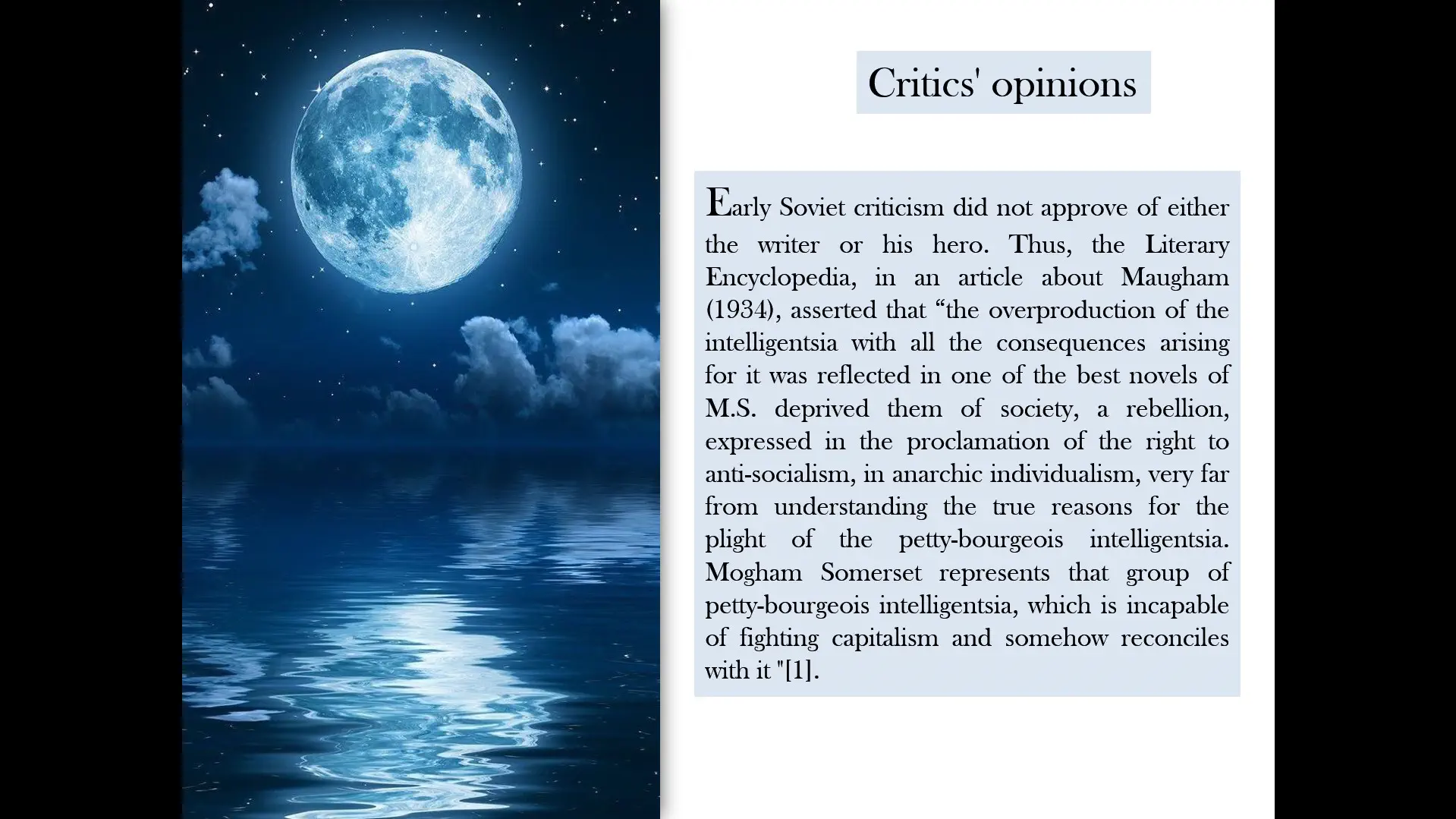

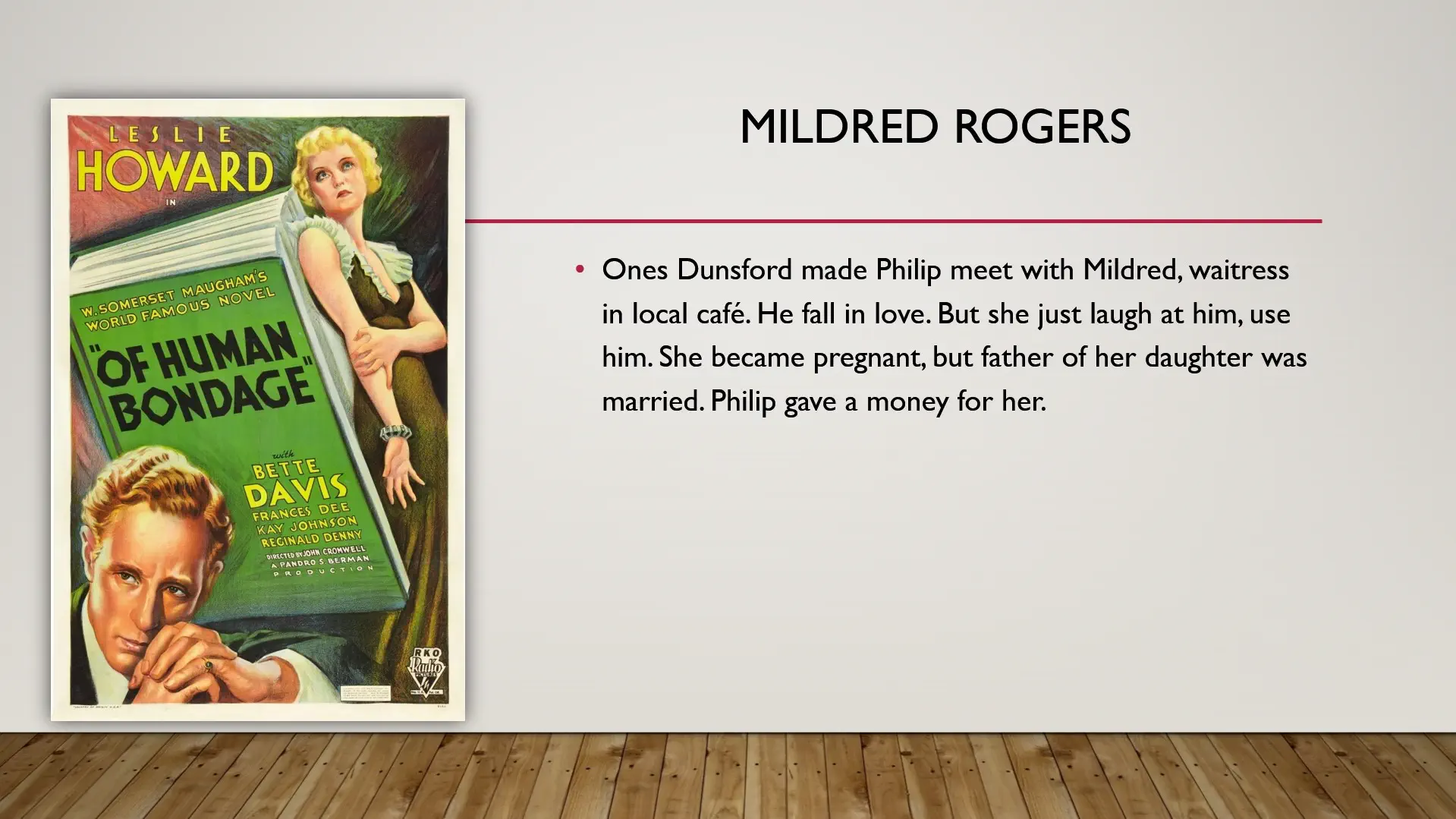

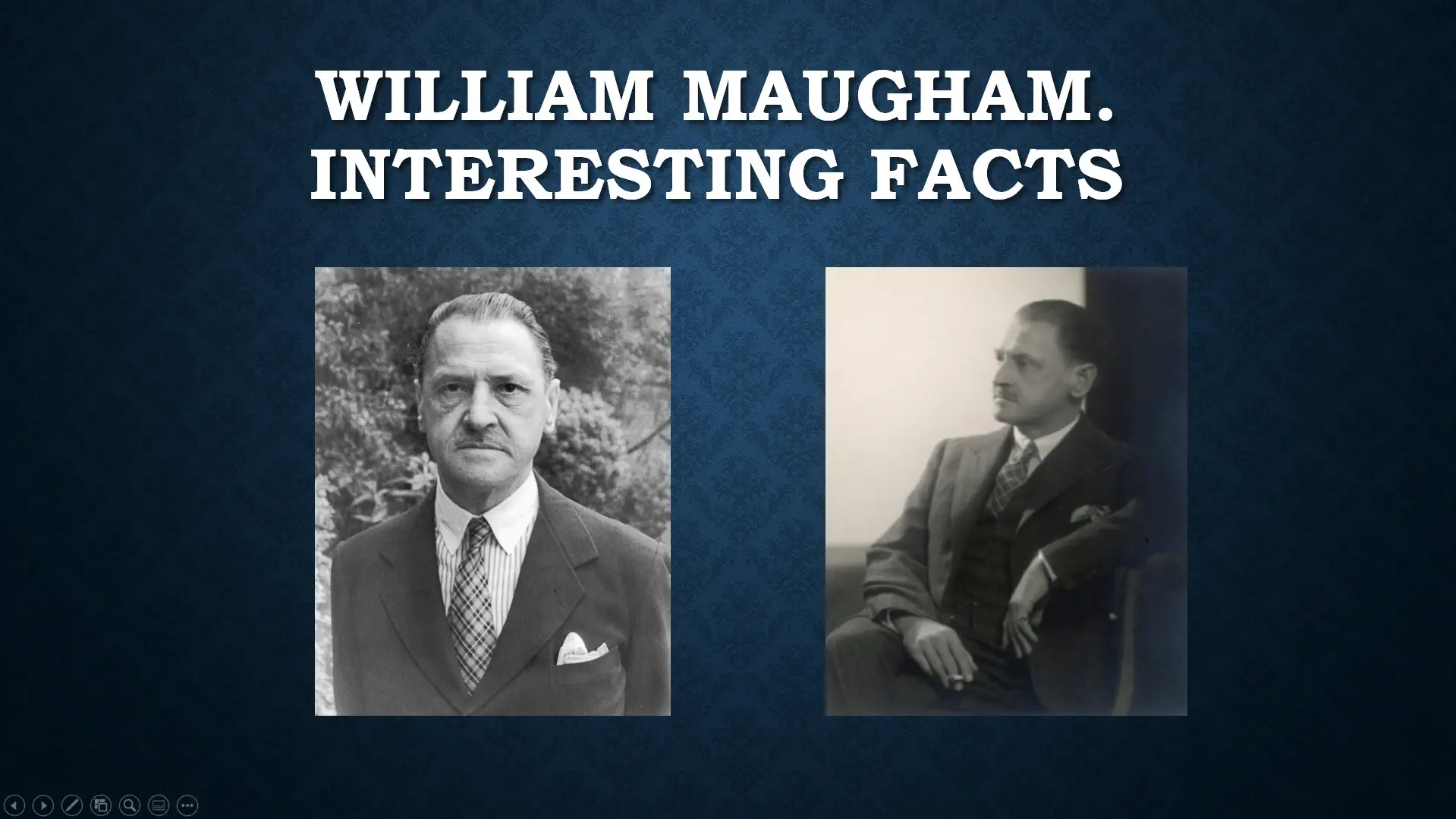
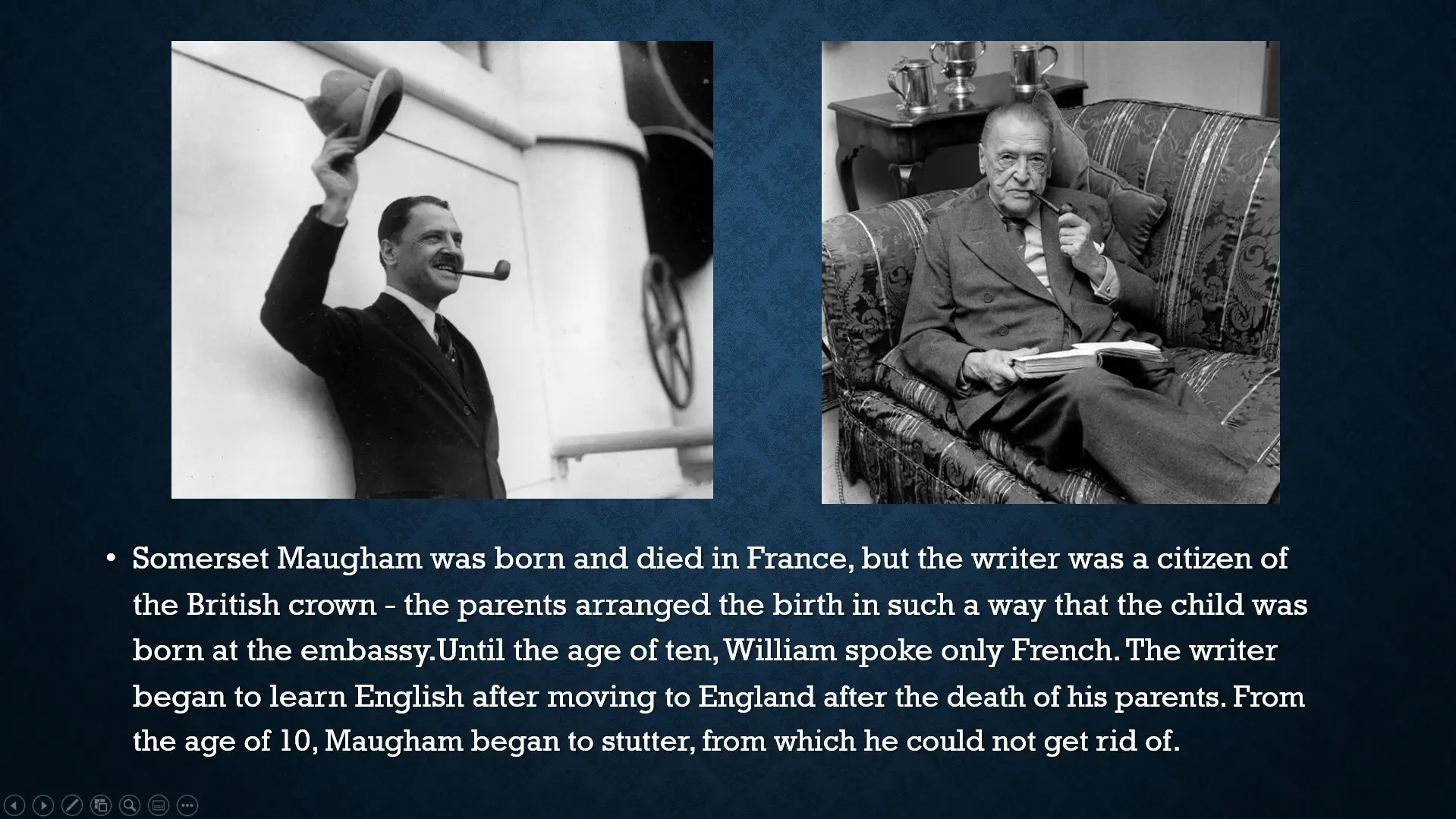
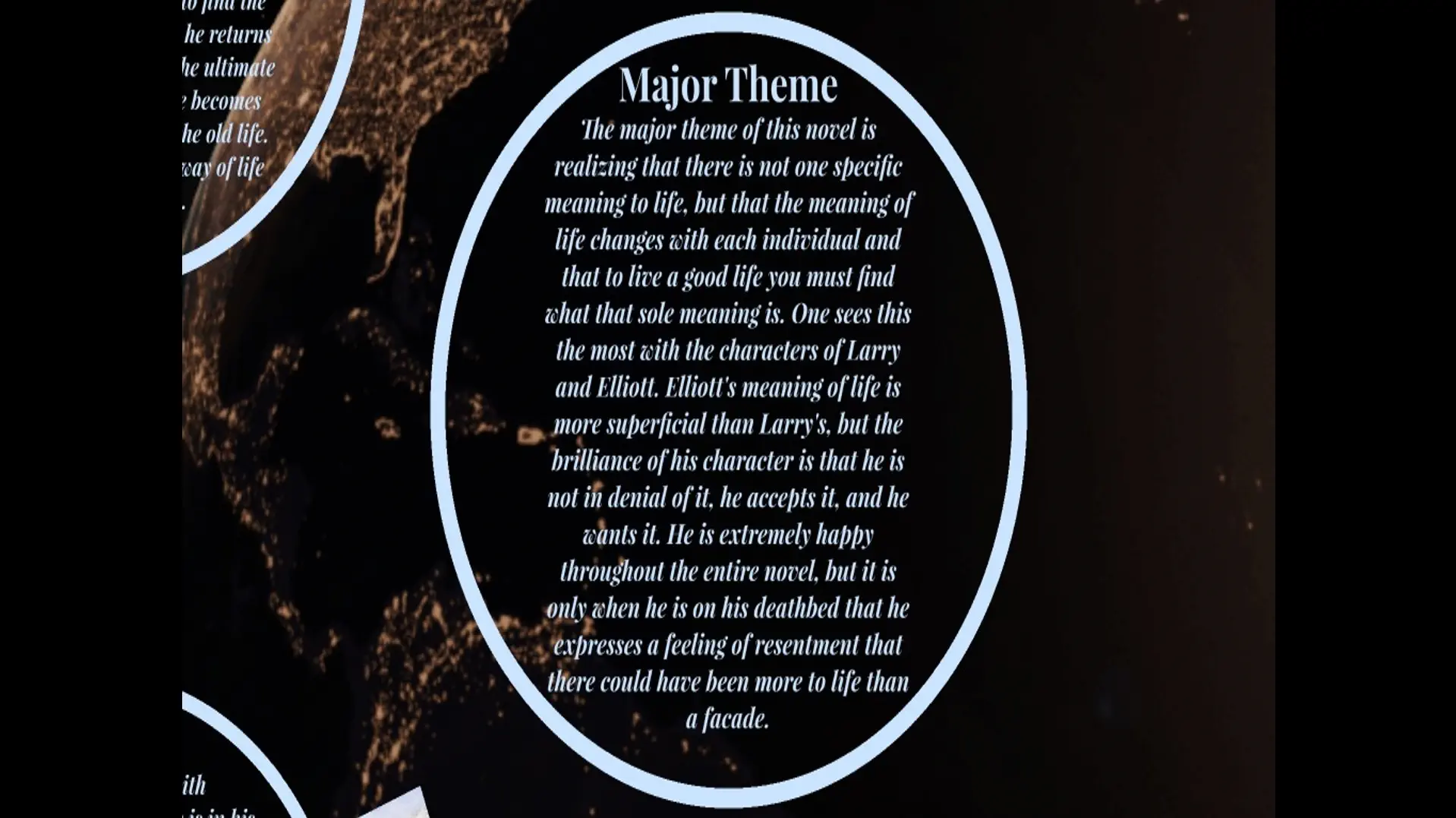

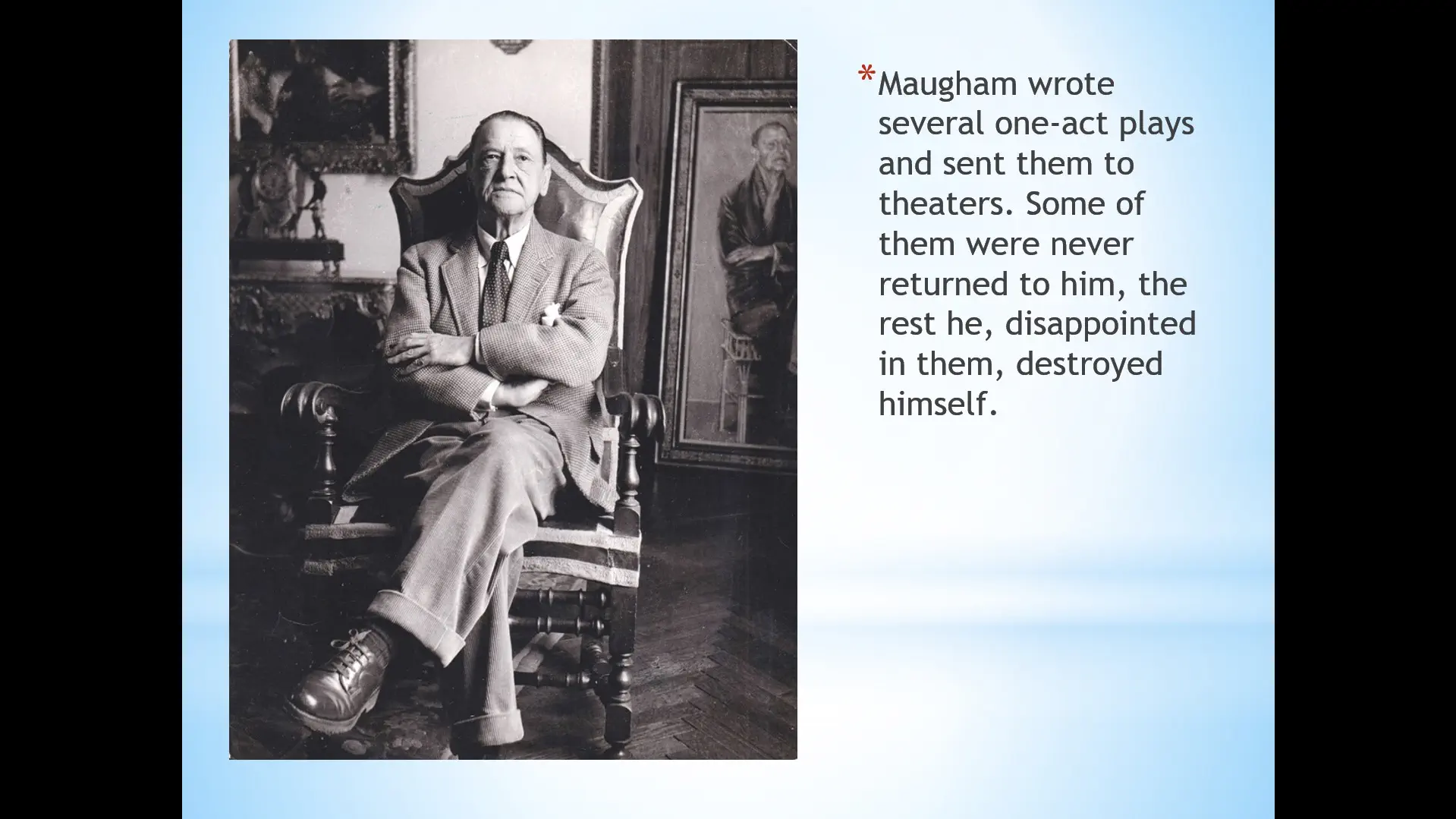

According to the writer, he did not like books written in colorful and complex metaphors, and so he avoided writing in this style. For this, critics have repeatedly accused him of excessive conciseness and dry presentation. However, as an opponent of snobbery, Somerset Maugham opposed literature understood only by aristocrats and aesthetes. It is thanks to this fundamental simplicity, which made his works available not only to sophisticated connoisseurs but also to ordinary readers, that he owes his great popularity. At the same time, the writer emphasized the constant self-improvement, which he engaged in until old age, not resting on his well-deserved laurels.
“The translator, like the author of the original, has a task, which is to evoke in the reader certain emotions, feelings, associations. Imagination is activated during reading; and the work itself should evoke in the reader’s mind pictures from the book, as if to involve him in action. That is why various tropes are widely used in literary texts, the most common of which are metaphors and figurative comparisons, the translation of which we researched on the example of S. Maugham’s novel “Theatre”,” – comments the club’s permanent member, a third-year student of the “Philology” specialty Diana Mykhailichenko.

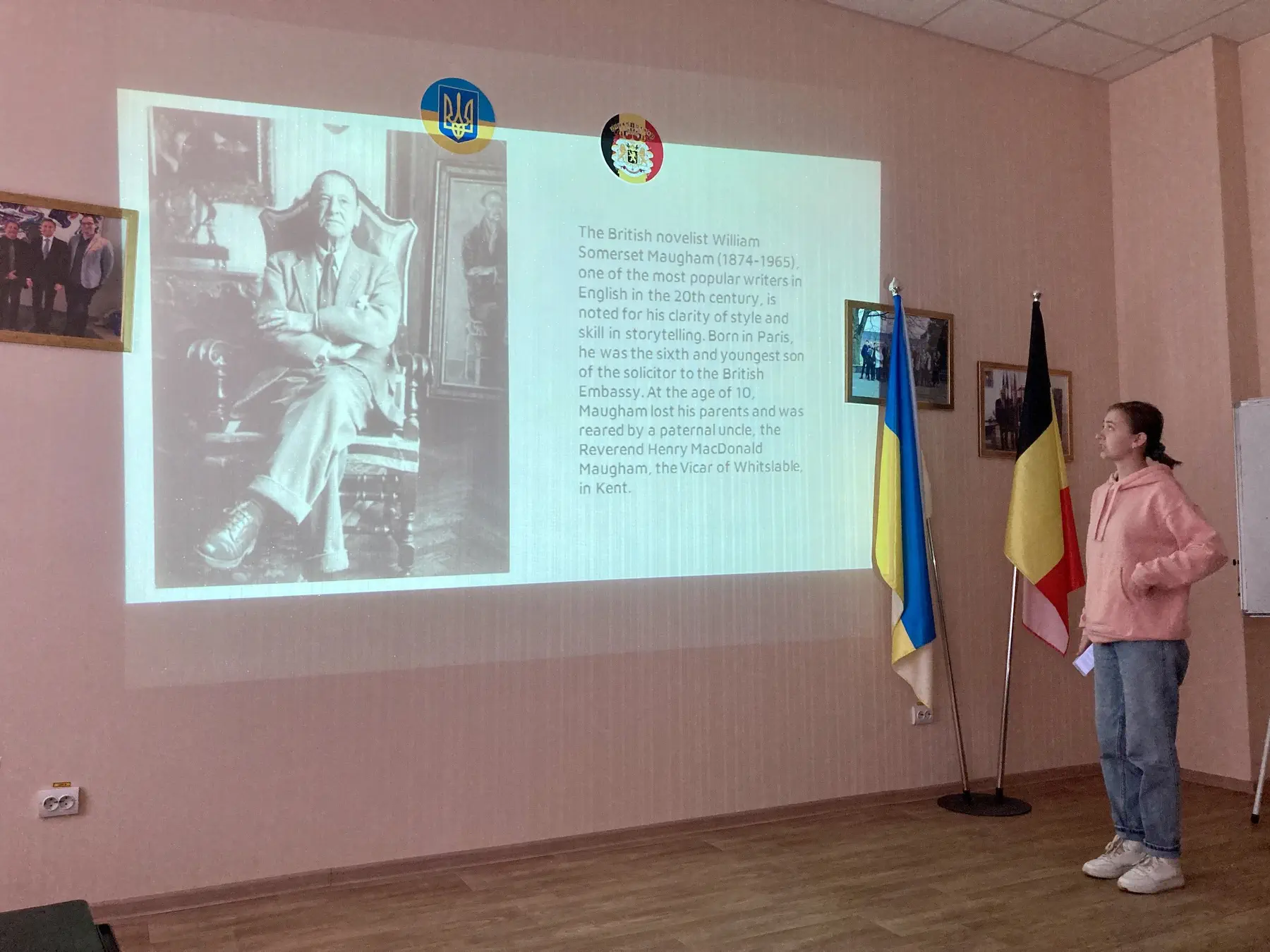
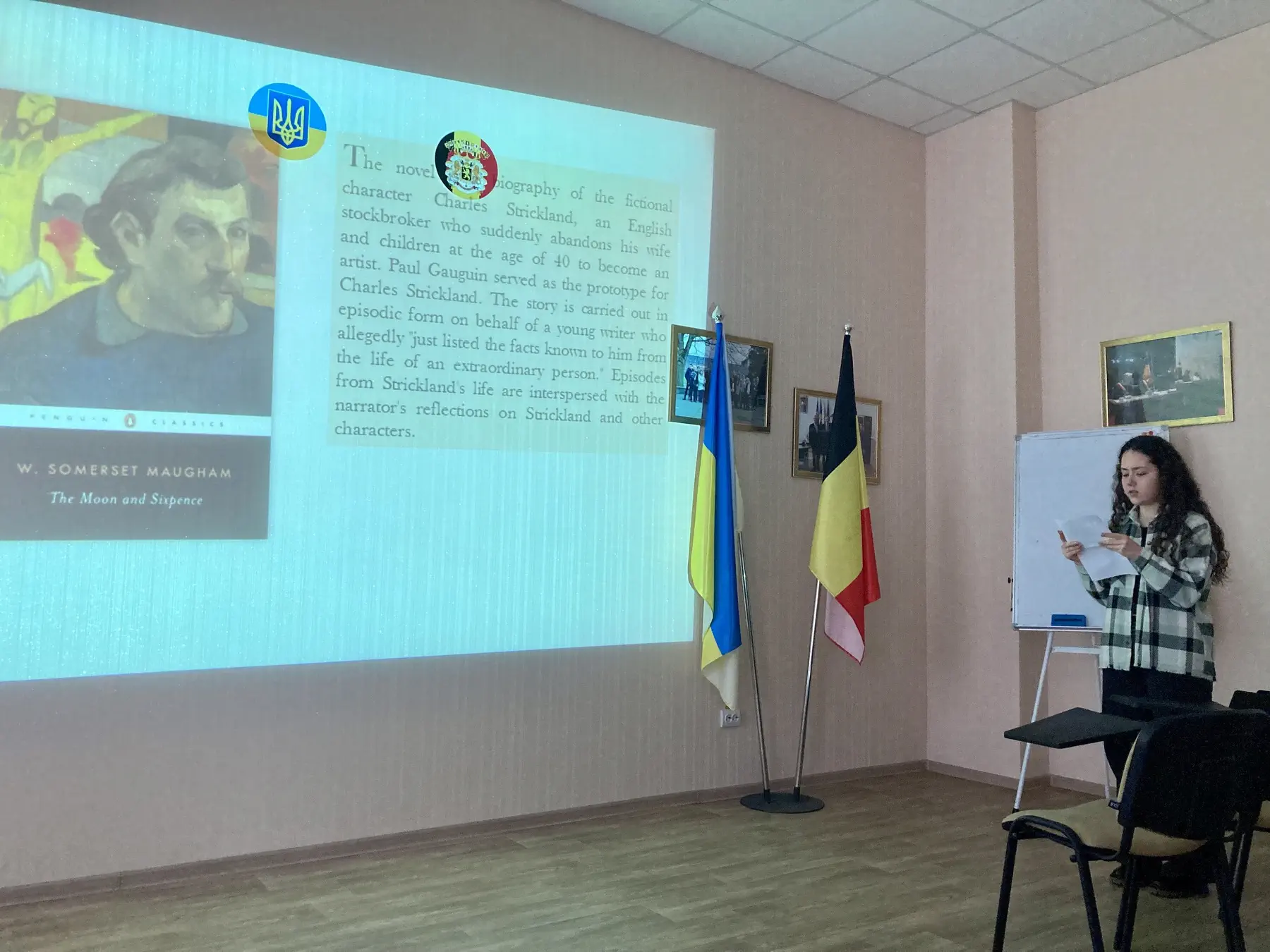

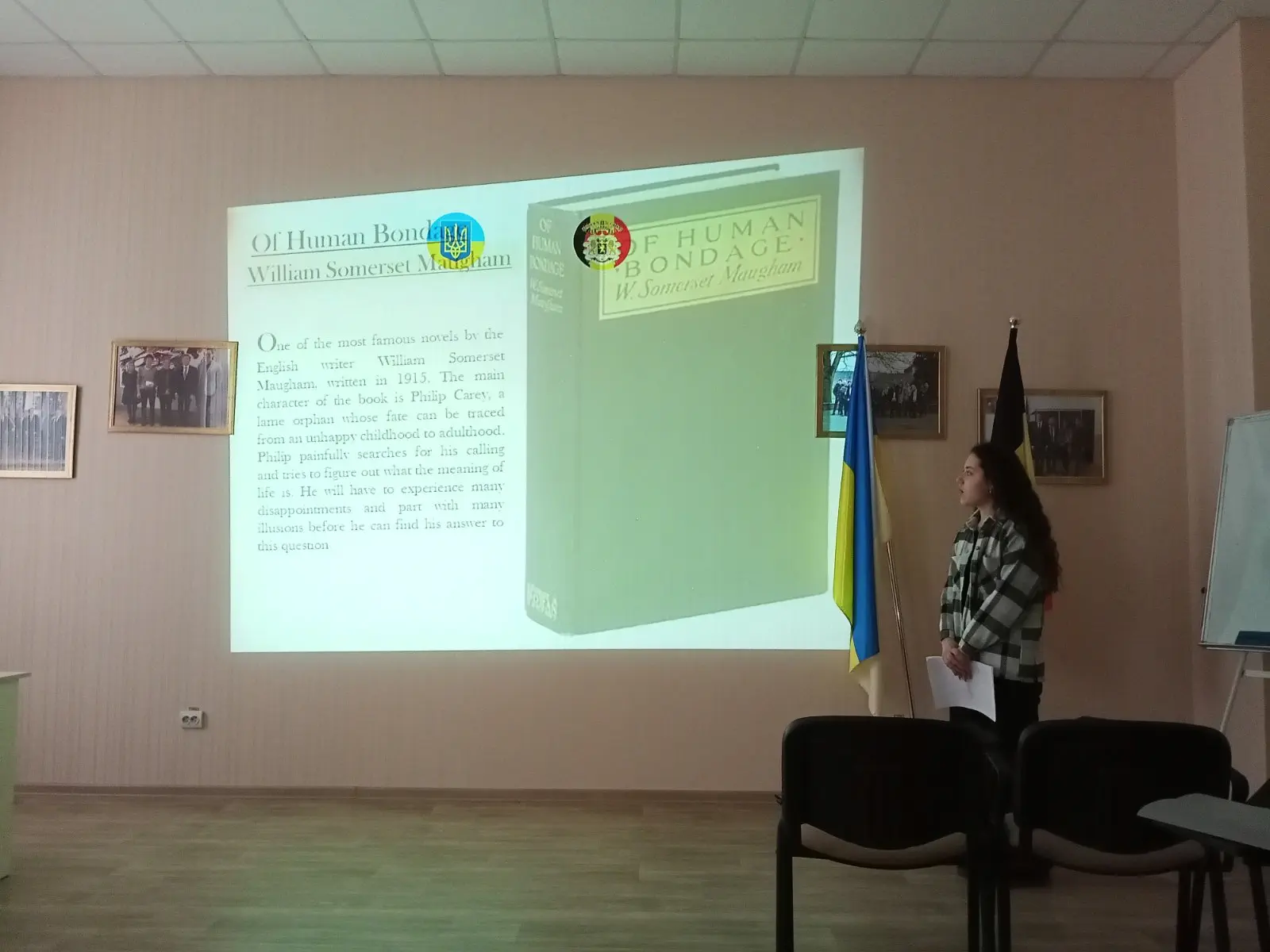
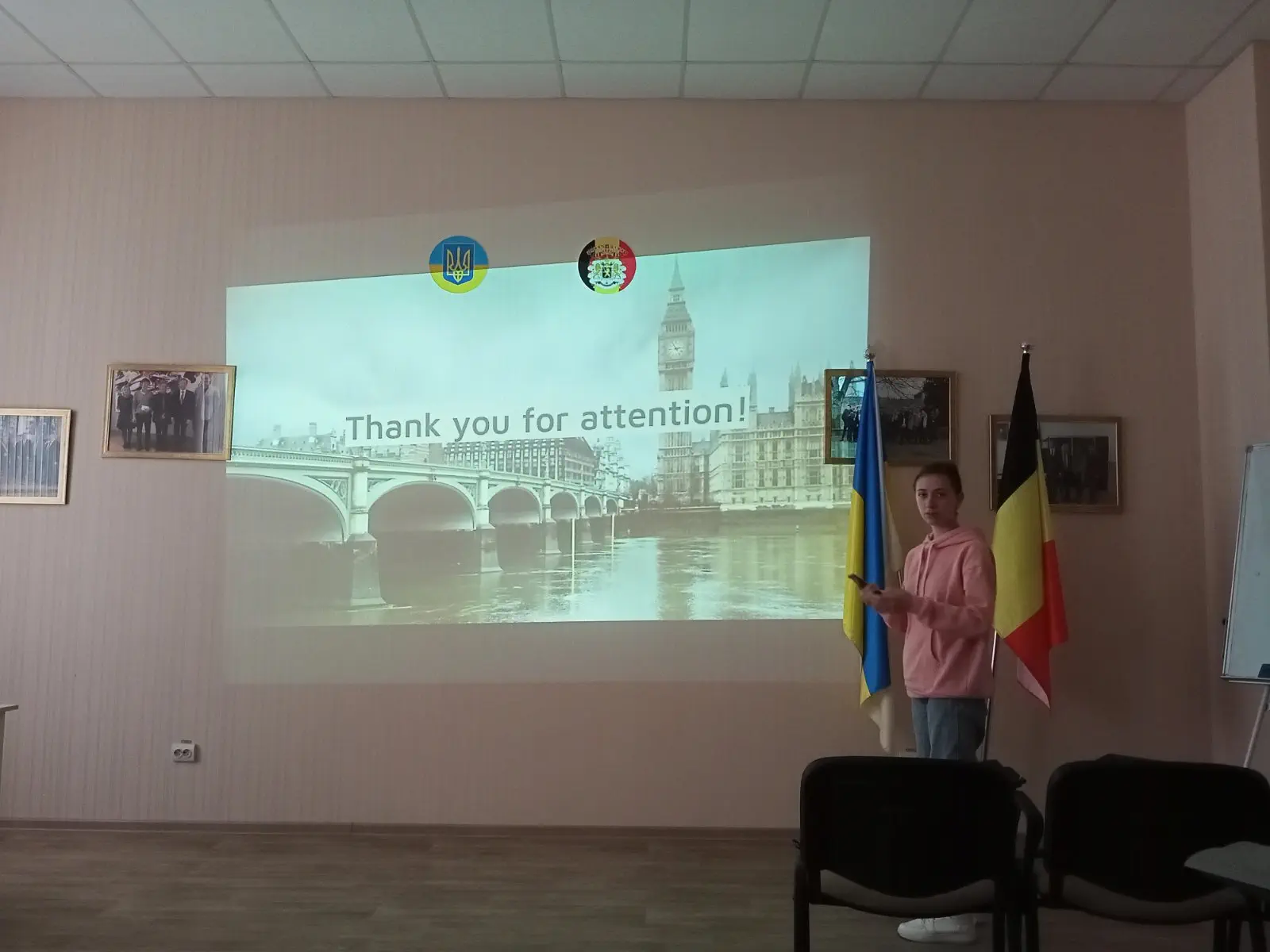

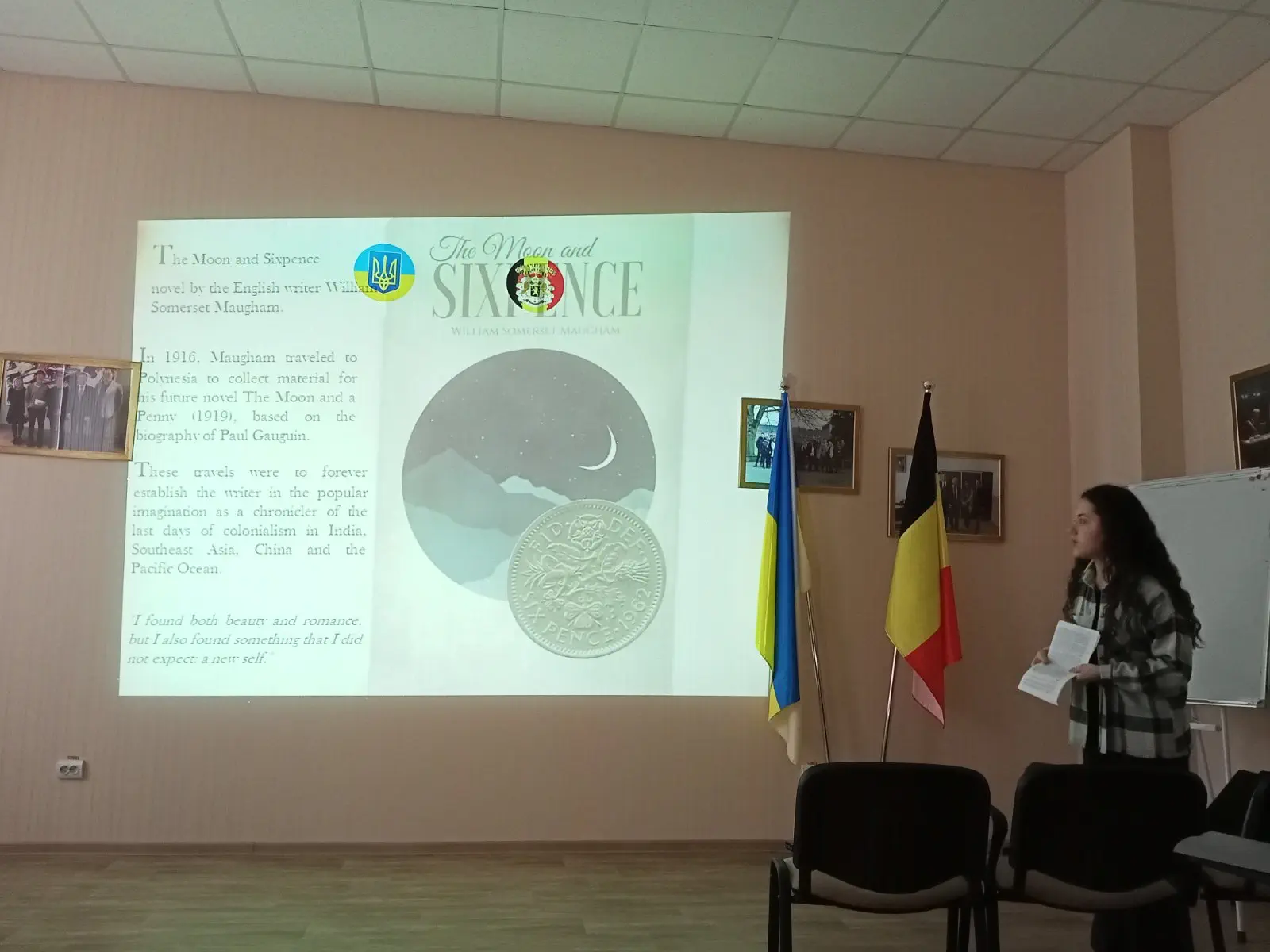
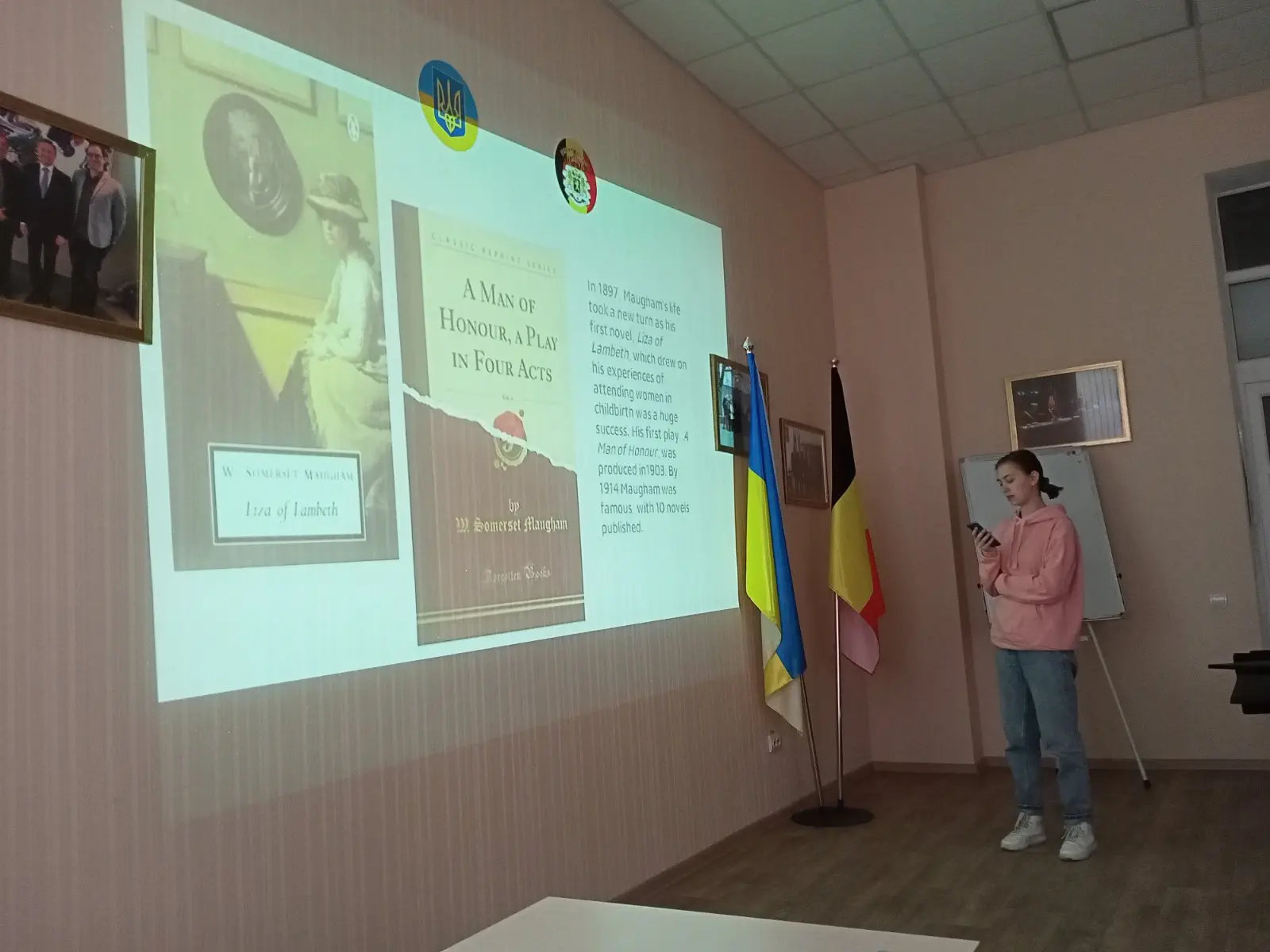
Meetings of the students’ scientific club “Philology” are held at the Department of Germanic Philology and Translation of Poltava Polytechnic. The next meeting of the club, despite the holidays, will be held in January 2022. The topic of the meeting will be the structural-semantic and translation aspect of phraseological units in Gogol’s story “Evening on the eve of Ivan Kupala”. Therefore, students of all academic years and specialties are invited to participate, as well as schoolchildren of the town and region, interested in the problems of literary studies, linguistics and translation studies.
For additional information on the time and place of the scientific club meetings, please contact the Department of Germanic Philology and Translation (Room 310-C) or directly the head of the club – Anna Kostiantynivna Pavelieva by phone: (095) 91-08-192.
Earlier, members of the scientific club presented translation researches of works of the “father” of a classic detective, discussed modern educational technologies, studied the creative heritage of Lake Poets, explored the translation of advertising slogans, considered a satirical novel by Mikhail Bulgakov and discussed the creative heritage of Polish fantasy writer.
Media Center of
National University “Yuri Kondratyuk Poltava Polytechnic”
